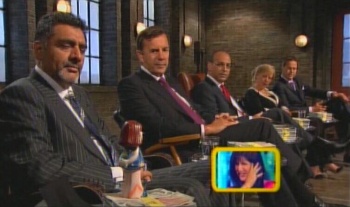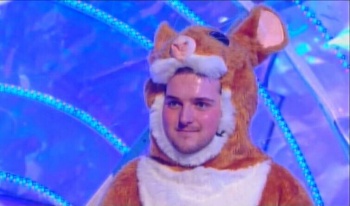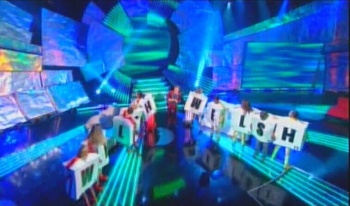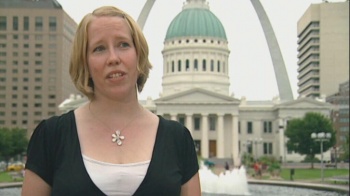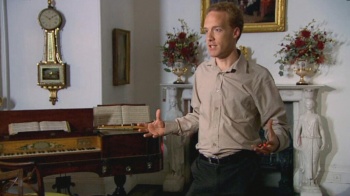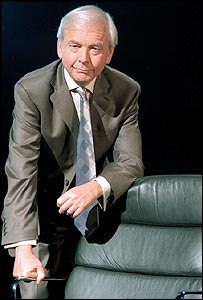Weaver's Week 2009-07-05
Last week | Weaver's Week Index | Next week
"Wouldn't it be terrible if Su Pollard were on this programme."
Contents |
Totally Saturday
BBC1, Saturday evenings
This review is mostly based on the show of 13 June.
| Readers with long memories will recall the early years of Antan Dec's Saturday Night Takeaway, when the programme was mostly geared to get members of the public doing silly things on television, and culminated in the ever-so-exciting win a commercial break contest. Some of the ideas worked, some of them (Make Ant Laugh, for instance) were tremendous flops and never came back. The reason Saturday Night Takeaway attracted viewers was that it was well-produced and excellently hosted. The reason it kept viewers coming back was that we never knew what was going to happen from one week to the next, from one segment to the next.
Over the years, Takeaway has lost sight of its unique selling point, and started producing formula television. The various viewer competitions to win prizes don't make particularly good television; does anyone really care for musical chairs played between bit-part players in soap operas? The win-an-ad-break game, in particular, was weak enough to be discarded after one series, but that was what got the show past the commissioners. Even the new ideas, such as the recent Escape From Takeaway Prison, swiftly became formulaic. Ant Versus Dec is innovative enough, but even that's beginning to run out of ideas. Only the opening salvo, where something strange happens to a member of the public, retains our interest. | |
| Is it good enough to spin out into a whole series? That's the question posed by Graham Norton's latest vehicle, Totally Saturday. The basic premise is that Norton will show people some of their possessions, then invite them on stage to take part in some activity tenuously linked to the item. For instance, a couple who did a very strange dance at their wedding have that very strange dance shown to the nation, then must try to identify the music that celebrity couples are dancing to. This particular game was clumsily executed: rather than have the contestants wear noise-cancelling earphones, we'd have had the dancers set up with little pieces in their ears so only they could hear the "Macarena".
Other elements of Takeaway are present and correct, not least the cross-promotion to other shows on the same channel. While ITV can only offer a diet of soap, soap, soup, and soap, the BBC can remind us of its wide variety of shows. That's why a small doll appears with the business brains on Dragons' Den, on the sofa with Breakfast, and with the top yacht racers of Blue Peter. This is a lead into a game in the Television Centre Car Park, in which Stuart Hall will commentate as workmates knock over giant replicas of the doll. Stuart's reprising his role of commentating while collapsing with laughter from It's a Knockout many years ago. | |
| Takeaway had The Mouse Trap, in which an unsuspecting member of the public ran in a maze looking for cheese. The idea worked better on paper than on screen, thanks to a needless additional jeopardy rule. Totally Saturday has the so-similar-it-hurts Hamster Wheel, in which a member of the audience is picked to run in a hamster wheel, a member of the public answers questions to win time, and both win money based on how far the hamster can run in the time. And all to the Hampsterdance music, too.
Hidden camera stunts are always popular, and we reckon that Totally Saturday's one idea would have the nod of approval from Game for a Laugh's Jeremy Beadle. Very simply, Norton assails passers-by to go into his shop, and invites them to sit in a bath and sing a song. The song they must sing is that well-known tribute to the British summer, "Frosty the snowman", and the bath is cold, with ice cubes on top. It's not particularly much to be getting on with, and the idea does pale after the first running, but the concept is there. Of course, had they run this stunt during this hot and humid and horrible week, they could have charged for admission, and probably doubled the show's entire budget. | |
| Almost inevitably, there's a big finish. Takeaway's big problem is that the advert competition simply doesn't work: there's a whole rigmarole about answering lots of questions and guessing where the prizes are, but the whole competition is settled by nothing more than the toss of a coin. We were bored in 2003. Totally Saturday has a properly-considered game, set up by people's sofas appearing on the studio floor. There's an elimination game, as various friends and family have dressed up in boxes with a different letter on the front and back, and they're asked to race to spell certain words. The faster group wins through to the endgame, where they have to try and stop a thermometer going up and down so that it's more up than down. All five members have to be accurate, and the game takes longer than one question.
Just as Takeaway got off to a slow start, so we don't expect Totally Saturday to be the greatest thing since sliced bread. The fishwrap critics have slammed the show, saying that it's a pale imitation of Takeaway. These days, even Takeaway is a faded imitation of itself. Unfortunately, the negative press attention seems to have got to the production team: later episodes have run for a shorter time (dropping from an hour to 45 minutes) and the hidden camera element has quietly been dropped. Read our lips: the show is worth sticking with. Have some faith. That said, we're less sure that there's room for both this show and the recent John Barrowman vehicle Tonight's the Night. The two formats could usefully merge, taking some of the glitter from Barrowman's programme, some of the snark from Norton's, and quietly letting some of the filler disappear into the ether. |
Question Time
| In our review of the Mastermind final two weeks ago, we noted how John Humphrys seemed to ask general knowledge questions somewhat faster of one finalist than another. Was this a trick of the ear, or was the host really going in favour of one contestant?
To find out, we took the audio from the specialist subject and general knowledge rounds of the winner, Nancy Dickmann, and the runner-up, Ian Bayley. We then analysed the files to determine how long the host took to say each question, how many syllables it contained, how long the contestant took to respond, and the time taken to deem the answer correct or incorrect. In the specialist subject round, Ian Bayley answered fifteen questions, fourteen of them correctly. The questions averaged 38.5 syllables, and John Humphrys asked them in an average of 6.46 seconds, for an average of 5.96 syllables per second. The contender took an average of 0.91 seconds to recall and present his answer, which averaged four syllables. John then took 0.55 seconds to confirm the correct answers. The champion, Nancy Dickmann, answered seventeen questions in her two minutes, and all but one was correct. Her questions had an average of 35.75 syllables, and John asked them in an average of 5.83 seconds. That's an average of 6.13 syllables per second. Nancy Dickmann's answers were slightly shorter – 3.76 syllables, delivered in 0.81 seconds – but John gave confirmation of correct answers in 0.38 seconds. | |
| Not only were Nancy Dickmann's specialist questions shorter than Ian Bayley's, but the host asked them appreciably quicker, and he indicated correct answers faster. Ian Bayley was a little unfortunate as the time expired just as the host was drawing breath for the next question; we suggest that, had the host delivered questions at the same rate, the next question would have begun before the buzzer, and the contender would have had an opportunity to answer. That's exactly what happened for Nancy Dickmann, who got one syllable of the last question before time expired, and that turned into a correct answer.
But Mastermind isn't just about its specialist round. There's a general knowledge round as well, and an opportunity to redress any inconsistencies. Here, the difference is perhaps more marked. Both contestants received questions of the same average length: 29.24 syllables for Ian Bayley, 29.31 syllables for Nancy Dickmann. The host was markedly quicker asking questions to Nancy Dickmann, 5.08 seconds compared to Ian Bayley's 5.28 seconds. There's no tremendous difference in the responses – 2.6 syllables per correct answer for Ian Bayley, 2.66 for his opponent – and a less marked difference in the host's acknowledgement of correct answers. Nancy Dickmann still had the rub of that green, 0.44 seconds compared with 0.51 for Ian Bayley. A clear difference arose in the times each contestant took to answer their questions: Ian Bayley averaged 1.17 seconds to formulate and deliver each answer, Nancy Dickmann took 0.84 seconds. In particular, only three questions caused Nancy Dickmann to think about the question for more than a second; Ian Bayley had nine such questions. | |
| Again, time expired in a manner favourable to Nancy Dickmann, four syllables into a question; her opponent had time go while the host was explaining an incorrect answer. Again, had he asked questions at the same rate of both contenders, Ian Bayley would have squeezed an additional question into his round.
Can we explain this discrepancy as an unconscious effect? Almost certainly: in the main speech while sitting in the chair before the general knowledge round, Nancy Dickmann spoke at 6.2 syllables per second, Ian Bayley at 5.6 syllables per second. This subconscious cue may have encouraged John Humphrys to speak slightly faster to Nancy Dickmann. It's clear that the host got into a better rhythm when asking questions of Nancy Dickmann, the gaps between the end of her answers and the start of his confirmations were much smaller Furthermore, it's almost impossible for someone to deliberately vary his speech patterns by these small amounts. Differences of 0.07 seconds to make a response, or eight syllables per minute when reading off cards, only show up when we've deliberately set out to look for them. In normal conversation, they're not detectable. If someone were trying to speak more slowly than normal, they would make much larger alterations in their speech patterns. Listening intently to the questions also revealed just how John Humphrys approaches the questions: without regard to punctuation. Commas may be included in the posers when they're written, but the host bulldozes through them without so much as a change of intonation or emphasis. He does tend to slow down during questions that include lists of short words. The data set is small – only 67 questions – and doesn't show any clear correlation between length of question and its speed. Is there a conclusion to be drawn from this exercise? We were sparked into this exercise by Nancy Dickmann's first two general knowledge questions, which were asked at 6.95 and 7.38 syllables per second. These were entirely atypical of her round. About the only conclusion we can draw is that it may be better to say the first thing that comes into one's head than to consciously think. Of questions where these excellent contenders took more than 1.5 seconds to respond, less than half were answered correctly. |
This Week And Next
Can we tell it's summer yet? All-Star Mr and Mrs, Miss, Or Mr topped the ratings in the third week of June, with 4.85m seeing the contestants do whatever it was they did. Celebrity Masterchef had 4.55m, and Millionaire 4.1m. Great British Menu reached its last week with 2.75m on the edge of their seats. The big surprise came at Channel 4, where Big Brother (2.4m) actually found itself behind 8 Out of 10 Cats (2.45m). Given the huge expense of the former show, and its sudden inability to attract ratings, press coverage, or even moans about the non-appearance of a tie-in game at Bother's Bar, we really must wonder why Channel 4 is still bothering. It could become the Come Dine With Me channel: repeats on More4 were seen by 1.3 million people on Sunday. By comparison, the Mastermind Grand Final on BBC2 had attracted 1.2 million viewers two nights before. America's Got Talent trailed in a dismal second, on 790,000, with QI recording 655,000 viewers, its highest score of the year.
Deep breath for all of this week's new series. University Challenge (BBC2, 8pm Monday) seeks the new Best Quiz Team Actually Studying In a British University As Students. More episodes of Wogan's Perfect Recall (C4, 5pm weekdays) and the return of Mock the Week (BBC2, 9pm Thursday). Amongst daytime shows, 60 Minute Makeover comes to Challenge (3pm weekdays), Put Your Money Where Your Mouth Is gets repeats on BBC2 (4.30 weekdays), and there's Celebrity Bargain Hunt (BBC2 6.30 weekdays). We're not sure if Clash (BBC1, 4.35 Tuesday) or You Have Been Watching (C4, 10pm Tuesday) pass the barrier of game, but we'll list them in case they do. Radio Scotland marks its independence with The Auld Grey Thistle Test (6.10 Friday), and the country contributes new Saturday night guessing game Guesstimation (BBC1, 8pm Saturday).
To have Weaver's Week emailed to you on publication day, receive our exclusive TV roundup of the game shows in the week ahead, and chat to other ukgameshows.com readers sign up to our Yahoo! Group.

